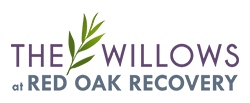When the idea of therapy comes up, most conjure up images of two people sitting in an office engaging in an emotion-fueled dialogue on past traumas, fears, and anxieties. In reality, however, therapy looks different for everyone. Everyone has their own emotional needs and will respond differently to varying forms of treatment.
The therapy mentioned above is broadly known as psychotherapy or “talk therapy,” but many other evidence-based therapies are available today. One such therapy that has gained traction for its unique methods and results is art therapy. While some might assume that art therapy simply integrates art-based activities into regular sessions, it is much more than that. Art therapy has been shown to benefit multiple mental health conditions and aid those recovering from addiction. Countless art therapy services are available today, but before choosing a program, it’s essential to understand the basics of art therapy for addiction recovery.
Is Addiction Recovery Through Art Therapy Possible?
When considering treatment for a substance use disorder, choosing a program that fits the client’s personal, emotional, and physical needs is essential. Art therapy can benefit those who have difficulty understanding and relaying their emotions or those who have experienced psychosis. Someone might have difficulty understanding the connection between their actions and emotions or accessing traumatic memories.
The focus of art therapy is on the creative process. This process views creativity and the act of creating art as healing. Art therapy can provide a much-needed break for those who struggle with emotional regulation, as they can convey their thoughts and feelings through nonverbal action. One of the art therapies’ most significant benefits is that it allows clients to improve to strengthen the connection between the emotions they feel, the impulses these emotions trigger, and the actions they choose because of these impulses.
What Is an Addiction-Based Art Therapy Recovery Program?
When researching art therapy programs, one of the first things that might be noticed is that they all operate under different curriculums. This variety is beneficial, as it provides various programs to choose. That is not to say they are all completely different, as many share similar activities. These activities include:
- Drawing
- Sculpting
- Painting
- Music
- Poetry
- Acting
- Journaling
When participating in art therapy, clients will be asked to focus on various things while they create. Rather than being asked to draw a specific object, they may draw a particular emotion or utilize a color representing their relationship to what they are creating. These exercises are designed to promote and encourage self-expression as a form of stress management that can be used as a coping mechanism when clients feel overwhelmed or stressed. When someone feels forced to divulge their emotions in a way that they are uncomfortable with, such as talking, they can develop a negative association with emotional expression.
Art therapy seeks to eliminate negative associations the mind may have with emotional expression through evidence-based exercises and activities. Depending on the program, a curriculum may focus on one form of creative expression over another. That is why it is of the utmost importance to thoroughly review a program’s curriculum before making a selection.
Receive Art Therapy For Addiction Recovery at The Willows at Red Oak Recovery
Addiction can be challenging to overcome, as it can cause harm in every aspect of life. At The Willows at Red Oak Recovery, our mission is to rebuild lives, restore hope, and inspire recovery for individuals and families alike.
For more information on art therapy for addiction recovery, contact The Willows at Red Oak Recovery team today, or schedule an appointment at 855.773.0614. We’re here to help you on your recovery journey.




